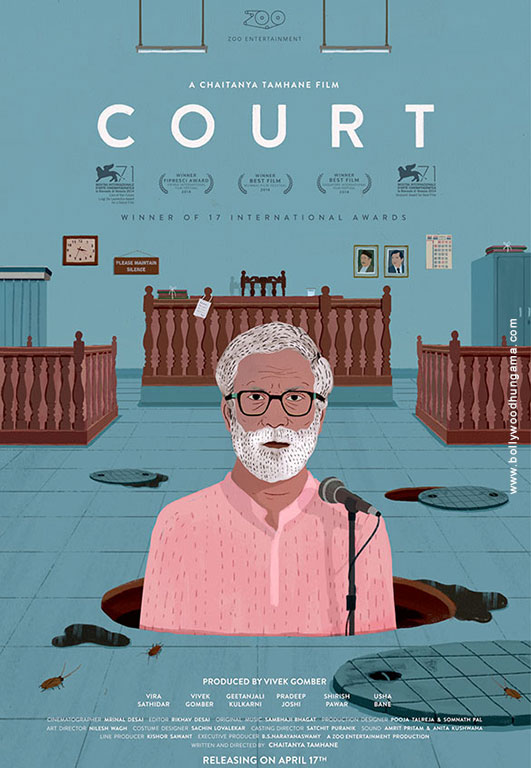Chaitanya Tamhane's Court approaches many fascinating and bitingly topical subjects for a constantly changing India. When those to the west think of India, we often imagine the hustle and bustle depicted in Slumdog Millionaire coupled with the energy and glittery elegance of Bollywood movies. Court is a slower burn with incredible wide cinematography that captures a disquieting stillness. It's almost like a political thriller where no-one can be trusted, but it's not a film that relies on tension or conclusions. It studies the westernisation of Indian culture through its network of characters, darting between the folk singer Sharmila Pawar and his 'Americanised' defence lawyer Vinay Voya, but without peeling back their layers. It's not interested in the characters as people but what they represent in the situation, wherein Pawar is being tried for inciting a man to suicide through his songs.
Instead, it contrasts the old with the new, with Indian traditions and the updates of the youths, aesthetically and with their behaviour. The courtroom drama prods at this aspect with old laws being questioned for being outdated and how they should be reconsidered. It seems a lack of compromise is also part of tradition and is something that contemporary Indians wants to implement. The film also studies the effect of art, questioning whether folk music can really change a government and if it does influence bad things incidentally, can it be held accountable? The power of poetry is a strange thing in a world drenched in culture. What counts as a performance when art is so fluid? Where do we draw the line between coincidence and crime? Court is a very dry but very thought-provoking and highly intelligent film that raises important questions about the world we live in, albeit it could've been improved by a bit more character work and a concise ending.


